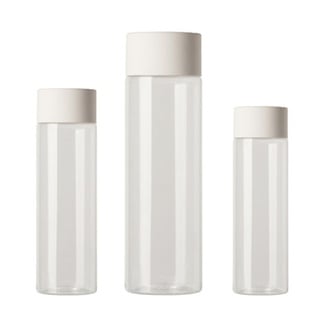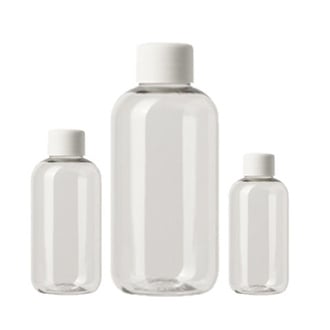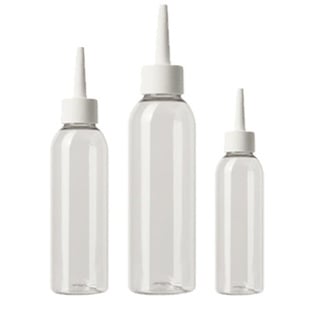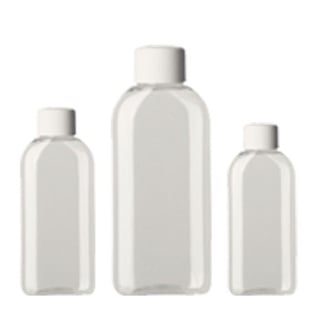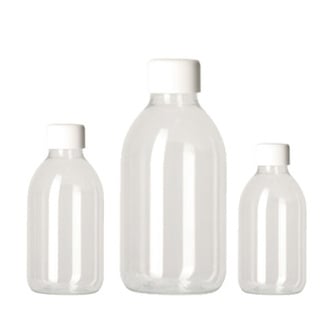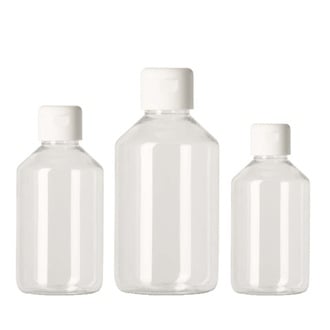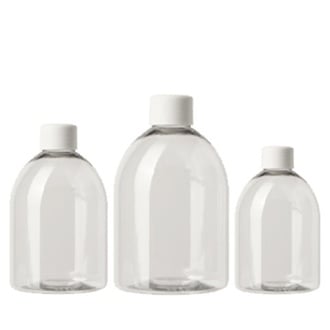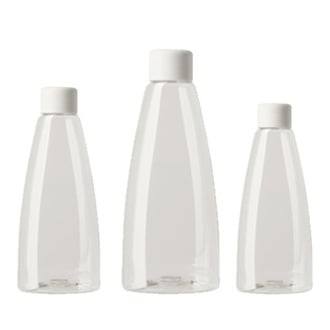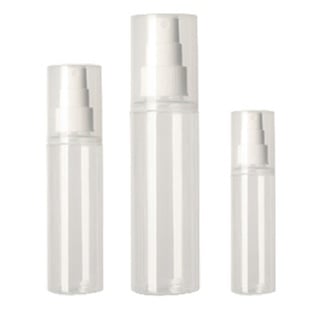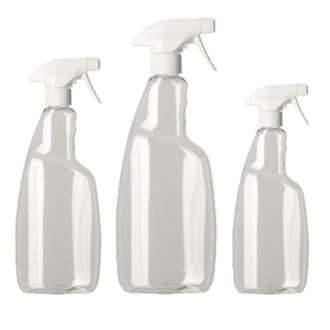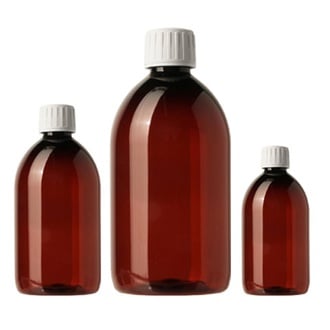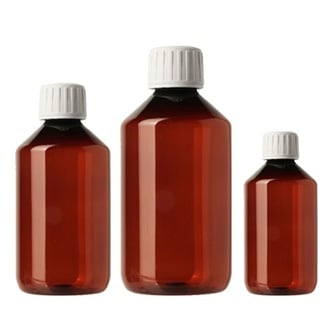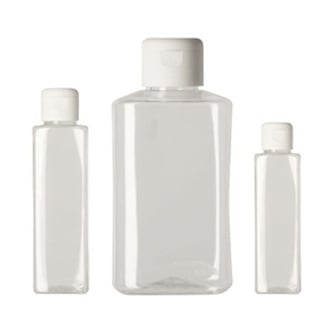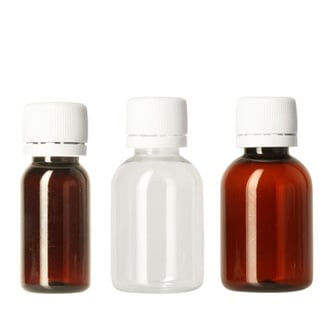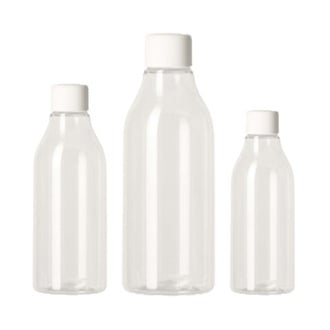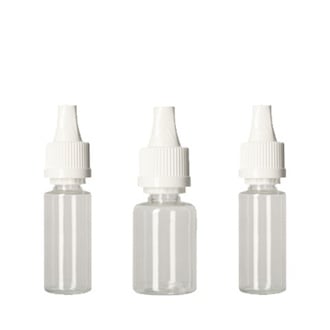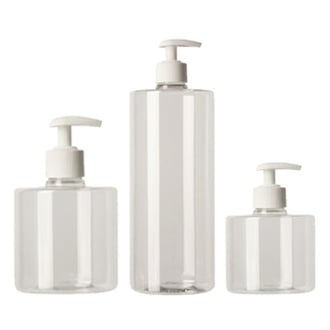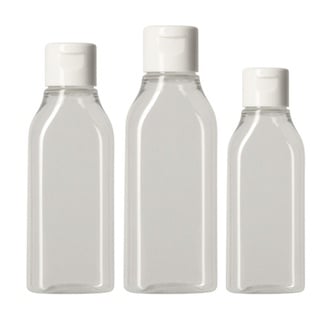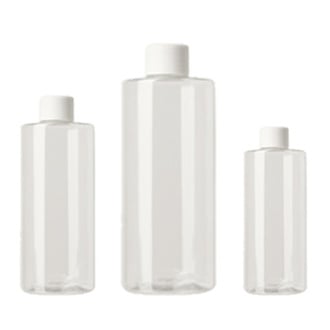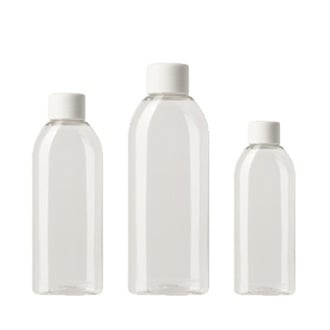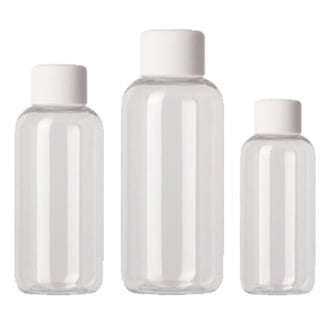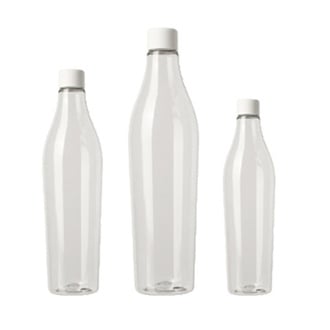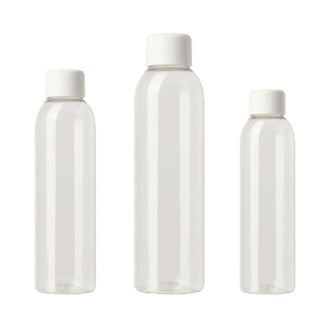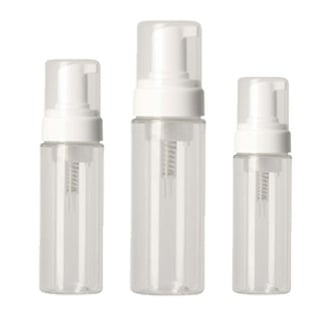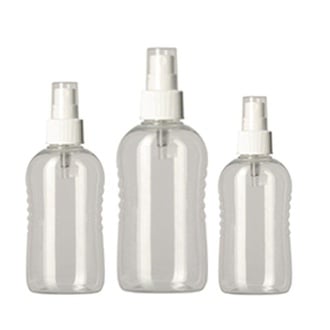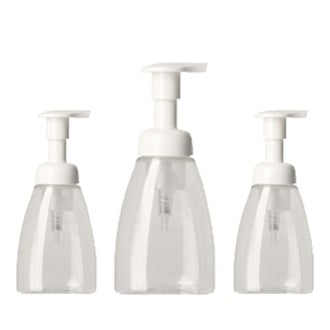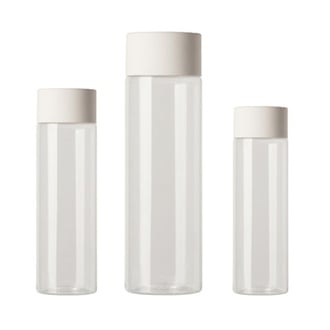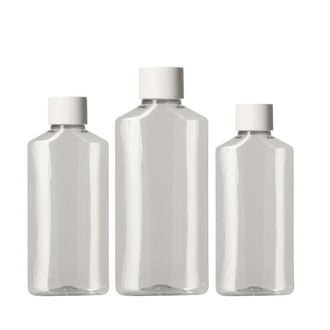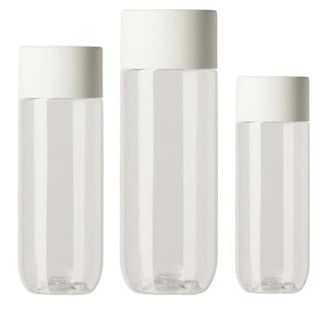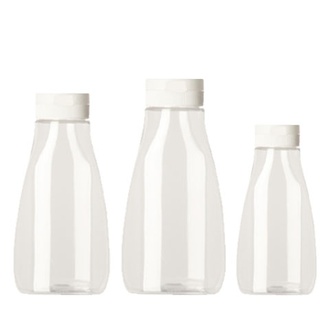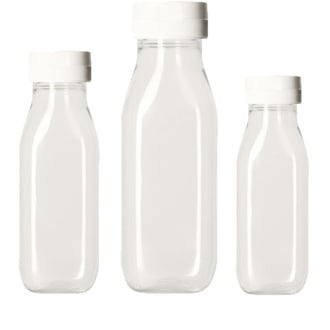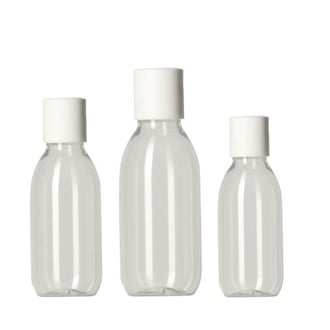RPET bottles supplier
Reliable rPET bottle supplier for innovative packaging solutions
Frapak stands out as a trusted rPET bottle supplier, offering high-quality, sustainable packaging solutions for the B2B market. With advanced European production facilities exceeding 10,000 m², we design and manufacture rPET bottles tailored to meet the specific needs of various industries, including cosmetics, personal care, food, and household products.
Our in-house research and development teams ensure we remain at the forefront of innovation, providing rPET plastic packaging that supports environmental goals while maintaining performance and durability.
Why rPET bottles are the future of packaging
Recycled PET (rPET) bottles provide a sustainable alternative to virgin plastic, delivering the same reliability and versatility without increasing the environmental burden. Their benefits include:
- Eco-friendliness: Made from post-consumer recycled plastics, reducing the demand for new raw materials.
- Durability: Strong barrier properties to protect contents from external factors.
- Recyclability: Fully recyclable after use, contributing to a circular economy.
For businesses committed to sustainability, rPET bottles represent an essential step towards greener packaging strategies.
Customisable rPET bottles for diverse applications
At Frapak, we understand that no two packaging requirements are the same. That’s why our plastic rPET bottles are fully customisable to meet the exact specifications of your products. Key customisation options include:
- Neck sizes: Options ranging from 24/410 to 28/410, or bespoke dimensions to match your application.
- Volumes: Bottle capacities from 10ml to 1,000ml, ensuring a fit for small samples and larger products alike.
- Shapes and finishes: Cylindrical, square, or custom designs available in clear or coloured finishes.
Our technical expertise allows us to provide packaging solutions that align with your product's branding and functionality.
Overcoming packaging challenges with rPET bottles
In today’s competitive market, businesses face several challenges in sourcing sustainable and reliable packaging. Frapak addresses these challenges by offering:
- Consistent quality: Every bottle undergoes rigorous quality control to meet industry standards.
- Efficient supply chains: With large-scale European production, we ensure reliable and timely delivery.
- Custom moulding solutions: Tailored designs to help your products stand out in crowded markets.
- Sustainability-driven materials: rPET bottles designed to minimise environmental impact.
These solutions ensure that your packaging not only meets functional requirements but also supports broader environmental initiatives.
How our production expertise adds value
Frapak’s European facilities combine state-of-the-art technology with in-house R&D, enabling us to provide exceptional rPET bottles. Highlights of our production capabilities include:
- Precision moulding: Advanced techniques ensure flawless design and manufacturing.
- Scalability: Capacity to handle high-volume orders without compromising on quality.
- Material expertise: Specialising in recycled PET, we produce bottles that balance strength, appearance, and sustainability.
- Customisation at scale: Bespoke designs tailored to specific needs, from branding to functionality.
With these capabilities, Frapak ensures your packaging is always a step ahead in quality and innovation.
Explore our range of rPET plastic packaging
Whether you require standard or custom-designed rPET bottles, Frapak provides solutions tailored to your business needs. By choosing us as your rPET bottle supplier, you gain access to products that combine sustainability, durability, and design excellence.
From initial consultation to final production, our team supports you in creating packaging that meets your environmental goals while maintaining high-performance standards.
Supplier of rPET bottles on stock
The demand for sustainable and eco-friendly products is increasing, and recycled PET bottles are becoming a popular choice for businesses that prioritize sustainability. If you are looking for an environmentally friendly packaging solution, then you are in the right place. Our 100% recycled PET bottles on stock are an excellent choice for businesses that want to reduce waste, minimize their carbon footprint, and promote a circular economy.
Our recycled PET bottles are suitable for a wide range of applications, including drinks, cosmetics, and household products. They are made from high-quality recycled materials, ensuring that they are durable, long-lasting, lightweight, and easy to handle. Whether you are a small business or a large corporation, our recycled PET bottles are an excellent choice for anyone who is committed to sustainability.
By choosing our recycled PET bottles, you are making a responsible choice that helps to reduce waste and protect the environment. You can also enjoy the convenience of having our bottles readily available on stock, with fast delivery times to locations throughout Europe.
Going Green Just Got Easier: Discover Our 100% rPET Bottles in Stock.
We offer a wide range of recycled PET bottles that are 100% sustainable, eco-friendly, and produced in the European Union. As a responsible business, we are committed to reducing waste and minimizing our carbon footprint, and our recycled PET bottles are an excellent solution for customers who share our values.
Five warehouses for providing rPET bottles
We take great pride in offering the widest range of PET bottles available on stock in the European Union, ensuring that our customers have access to high-quality products that are manufactured in Europe to the best possible standards of quality and safety. Our recycled PET bottles are stored in our five warehouses located in France, the Netherlands, Spain, Germany, and Slovenia, which enables us to provide fast and reliable delivery times throughout Europe.
Our extensive range of recycled PET bottles includes different sizes, shapes, and colors that are suitable for a variety of applications, from drinks to cosmetics and household products. All our bottles are made from high-quality recycled materials, ensuring that they are durable, long-lasting, lightweight, and easy to handle.
Our team of experts is always available to provide advice and guidance on the best products to suit your needs, whether you are a small business or a large corporation. We are committed to providing excellent customer service and support, and we work with our customers to find the right products, ensure timely delivery, and provide ongoing support to ensure complete satisfaction.
We take sustainability seriously, and we strive to ensure that all our products are manufactured in an environmentally responsible manner. By choosing our recycled PET bottles, you are making a responsible choice that helps to reduce waste and protect the environment.
High quality recycled PET bottles
If you are looking for sustainable, eco-friendly, and high-quality recycled PET bottles that are available on stock, fast delivery times, and excellent customer service, then you have come to the right place. We are committed to providing our customers with the best possible products and services, and we look forward to working with you to meet your needs. Please feel free to browse our website and contact us with any questions or inquiries you may have.
